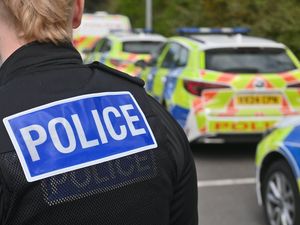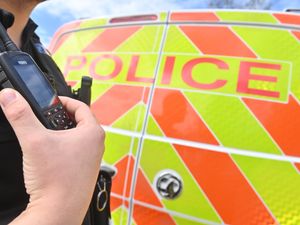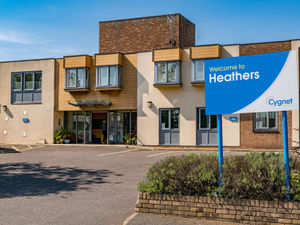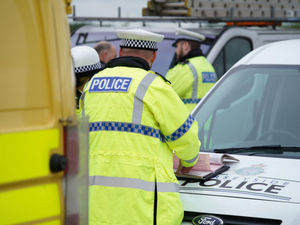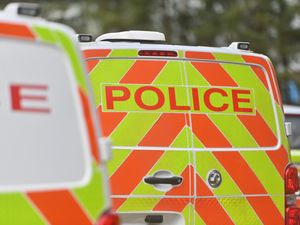Former boxing world champion Richie Woodhall helping to knock out cancer for dad
It might be 17 years since he took the World Boxing Council's super-middleweight title, but Richie Woodhall still cuts an imposing figure.
The 47-year-old is in big demand these days as a pundit, and 13 years after his retirement as a professional boxer, there is still something about his stature which commands respect.
Yet when he talks about the influence of his father Len on his boxing career, the guard comes down, and he struggles to hide his emotion.
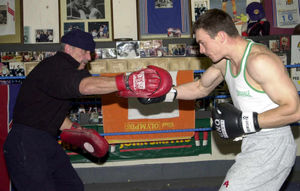
This toughest of tough guys, the man who took on Thulani "Sugar Boy" Malinga, Glenn Catley and Vincenzo Nardiello – and won – shows a side to his personality that few people would recognise as he talks about how the illness took its toll on the strong, fit man who was known and respected throughout the sport.
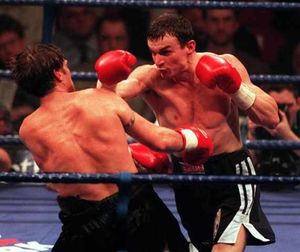
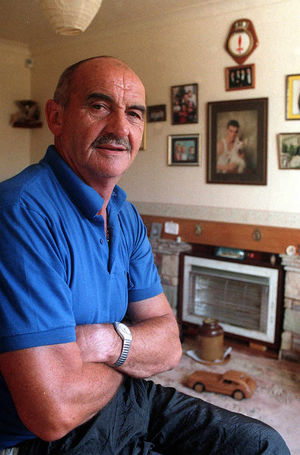
That is why he has decided to sell off some of the boxing memorabilia he has collected over the years, creating a fund that will help cancer charities in Shropshire.
In July this year, Richie's father Len, a retired boxing coach, lost his eight-year battle with cancer, dying peacefully at his home in Telford at the age of 75.
"A lot of what I have done is down to my dad being a coach," says Richie, who grew up in the Woodside area of Telford.
"I owe so much to both my dad and my trainer Harry Grice.
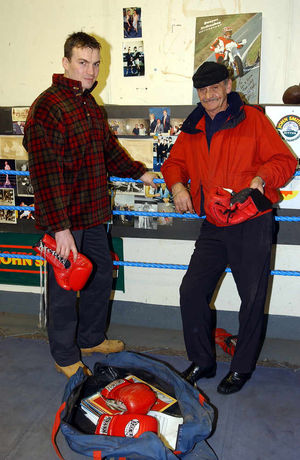
"I always remembered throughout my boxing career my dad's influence. He always had a feel for the sport as he had boxed as an amateur.
"He always emphasised the importance of using my height and range. I was a tall skinny kid for my weight, and he was always an influence on me using the physical attributes I had."
And as a tribute to the father who he says did so much to shape his career, Richie is planning to auction off a dazzling collection of boxing memorabilia to raise money for cancer charities.
"I wouldn't want anyone to go through what we did as a family," he says.
"It's crippling really, it's been the worst year of my life. But it's given me my enthusiasm and drive to do something in his memory."
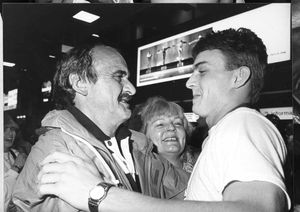
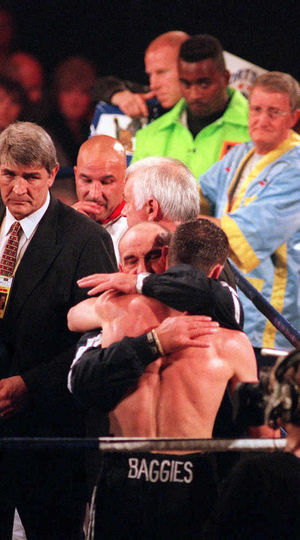
Richie was born in Birmingham, but moved to Woodside at the age of three, and it was at his local community centre where he discovered the sport which would make his career.
"I suppose it was the big brother, little brother thing," he says.
"I had two older brothers, Lawrence and Stephen, who were members of Woodside Amateur Boxing Club, and I suppose I wanted to follow in my brothers' footsteps.
"My dad had boxed as an amateur at Birmingham as a kid, and when we moved to Telford in 1971 he became involved with the coaching.
"My brothers went to the club, it was my mother who said to my dad 'you should go along and see if they need a bit of help'.
"I would have been about eight, I suppose, when I first started going.
"We all boxed together at Woodside Community Centre. The club was run by Jimmy Maguire, and after a couple of sessions he said to my dad 'do you want to help out?' There was a couple of coaches there, and he took his coaching badge, to become an ABA senior coach."
Woodside ABA was renamed Telford ABA following a move to Lumley Hall in Madeley, and it was here that Richie met Harry Grice who became his main coach. And he says both men were crucial to his development.
"My dad always worked on my jab, and he always emphasised my need to box at distance," he says.
"Being a top boxer is about using what you have got, and my tool was my range. He taught me that I should keep my distance, I was never going to go toe-to-toe with a short man and fight his fight."
While the WBC super-middleweight title might have represented the pinnacle of his career, Richie maintains that his bronze medal at the 1988 Olympics in Seoul was always Len's favourite moment.
"My dad always said the proudest moment of his life was when I won bronze at the Olympics, even after I became World Champion.
"I was only 20, and we took an eight-man team.
"Whenever anybody asked him about his favourite boxing memory, he always said it was winning the bronze, more than the world title."
At the games, Richie defeated Desmond Williams, from Sierra Leone, Apolinario Silveira, of Angola, and Rey Rivera from Puerto Rico to take bronze. He was defeated by American Roy Jones Junior, who went on to take silver after losing to South Korea's Park Si-Hun in a controversial final.
Among the items Richie is auctioning off is a large print of his 1988 fight against Jones, which has been signed by both boxers.
Len, who had been born in West Bromwich, had been diagnosed with prostate treatment eight years ago, but up until this year had been able to control it with chemotherapy.
"Then at the start of this year, he had pneumonia, and something happened then that triggered the cancer to spread," says Richie.
"It spread to the liver and bones, and that's when they knew there was no way back, and that he had only got so long to live.
"They didn't know how long he had got, they said the fighting spirit of some people mean they can go on for some time, while others can go on for just a few weeks.
"He was in good spirits right until he died, it didn't affect him. He didn't know how long he had, but he had a positive mind. He kept saying 'I'm going to get through this'.
"He didn't suffer, he went to hospital for a bit, and they realised there was nothing they could do for him, so they let him go home.
"He was strong, he still wanted to go fishing at the start of the year, the local fishing club at Aston Eyre were fantastic, all the fishermen loved my dad, and would carry his bait to his peg for him. He was getting weak, and he couldn't really carry his stuff around, so the lads would carry his tackle to his peg.
"He still walked down to Madeley regularly and would go into the bookies, he loved to have a bet here and there. Right up until he died he remained as active as possible.
"For the last eight weeks of his life he was at home and he was in the company of people around him."
Richie says that, while battling the illness, Len received care from the Lingen Davies Cancer Care Centre at Royal Shrewsbury Hospital, and that would be one of the charities he would want the fund to support.
"Everyone that treated my dad was really good to him," he says.
"There are some great people on the Lingen Davies ward, they are obviously very experienced and there is a personal touch there. I have got nothing but praise for the nurses, they treated my family very well.
"They say that a third of people are affected by cancer, and it is something we really need to do something about it," he adds. "This is why I am doing this in memory of my dad."

